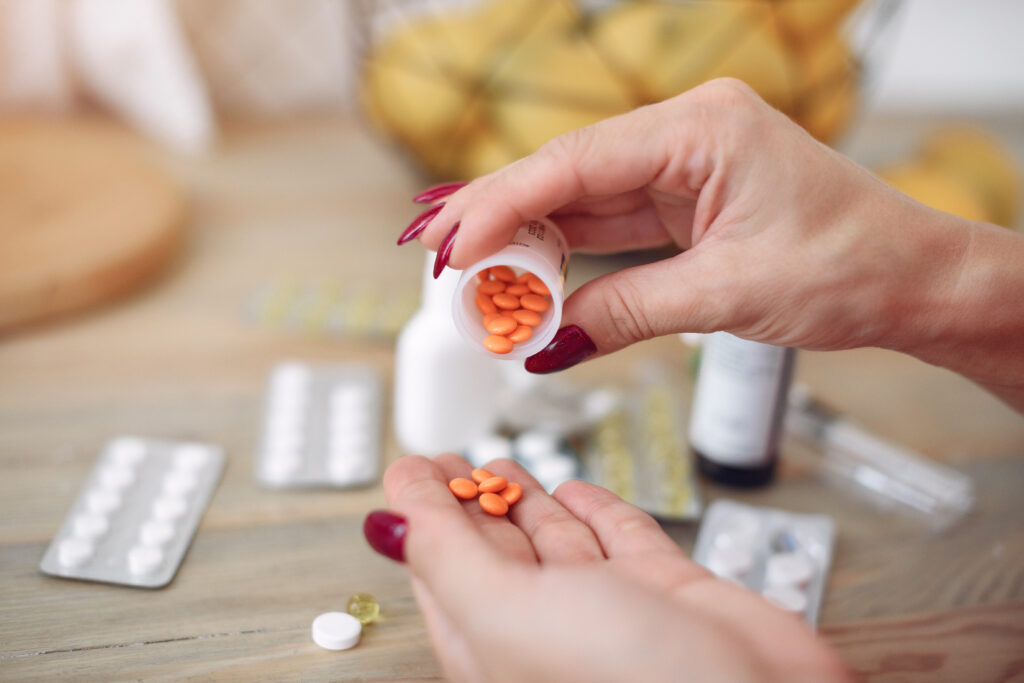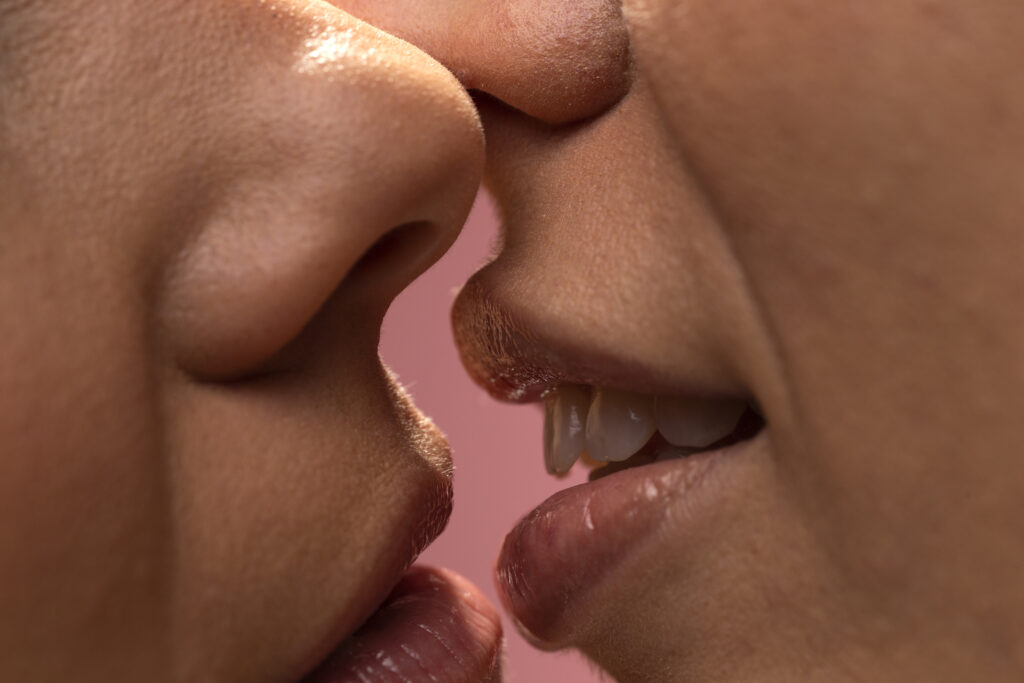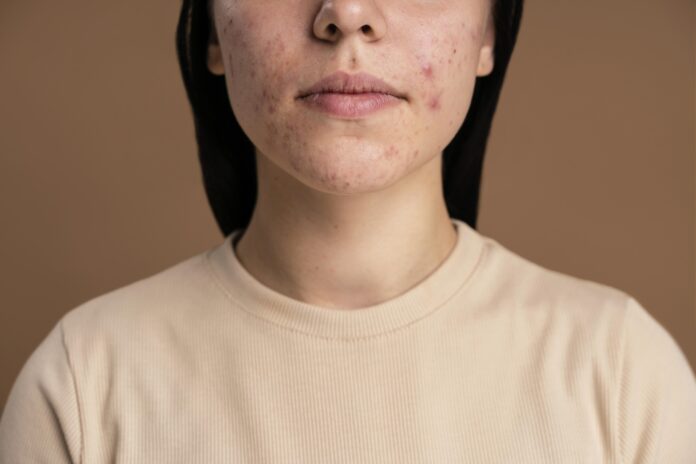Contraction of Herpes Simplex Virus causes Oral Herpes and Genital Herpes. Herpes is an infection in which blisters and sores in or around the mouth or genital organs, alongside other symptoms, appear. Currently, no cure has been discovered for this infection but one can manage the symptoms through treatment techniques.
Do you ever experience cold sores in or around your mouth? The sores caused by herpes virus in your mouth are called cold sores. These are painful blisters. Small blisters or lesions are characteristic signs of herpes. The blisters or lesions around the genitals, mouth, or rectum indicate that the herpes simplex virus is contracting in your body.
In this article, symptoms, causes, and treatment methods of oral herpes and genital herpes are described. You can also learn how to prevent these sores.
Types of (HSV) Herpes Simplex Virus
Herpes simplex virus has two types:
- (HSV-1) Herpes simplex virus type 1.
- (HSV-2) Herpes Simplex Virus type 2.
Both types of herpes simplex virus cause oral herpes and genital herpes respectively. The virus also can cause infections, sores, or blisters in other parts of the body.
Parts of The Body Affected by HSV: Herpes simplex virus type 1 and 2 can cause infections in your mouth, genitals, skin, eyes, brain, and spinal cord.
Overview of Genital Herpes
Genital herpes is one of the most common forms of sexually transmitted infections (STIs).
According to the Centers for Disease Control and Prevention, more than five hundred thousand people in the country are affected by this infection. People aged between 15 to 50 are mostly affected by genital herpes infection. It usually develops due to HSV-2 but sometimes HSV-1 also causes genital herpes. Genital herpes infection is transmitted from one person to another through genital contact with someone who has HSV-2. While a person having HSV-1 can also transmit it through oral sex with someone who has an oral HSV-1 infection.
Overview of Oral Herpes
HSV-1 generally causes oral herpes. According to an estimate, 60 to 80% of adults in the country are living with HSV-1. The appearance of blisters or lesions on the lips or around the mouth is the main symptom of the presence of HSV-1 infection in a person. Sometimes, blisters also appear on the tongue or the face.
Studies prove that most people get affected by oral herpes due to viral contraction during their childhood or young age through nonsexual contact with saliva. At the start of the infection, the affected person feels tingling, burning, or itching around the mouth, tongue, or lips. After that small blisters or cold sores develop near these areas or on the skin around the mouth.
General Symptoms of Herpes
People who are affected by HSV-1 or HSV-2 infections may experience burning, tingling, or itching around the mouth, on the lips, or the tongue and genitals. Before the recovery stage, these blisters break out and release a fluid that forms a crust at and around the affected area of the body.
The American Academy of Dermatology stated that sores or lesions may develop within 10 to 20 days after the virus is contracted into your body. These blisters last for at least 8 to 10 days but they can last longer during the initial outbreak.
Oral Herpes Symptoms
Blisters are initial symptoms of Herpes. Chills, sores, and cold sores developing around your lips or mouth are included in secondary symptoms. It is also observed that other parts of the body are also attacked by this infection and sometimes blisters appear on the other areas of skin but it happens rarely.
National Health Service Institutes in the United Kingdom has declared that these sores go towards the recovery phase on their own in 8 to 10 days.
Symptoms of Genital Herpes
The Centers for Disease Prevention Institute declares that genital herpes doesn’t have specific or distinctive symptoms or may have some mild symptoms. However, the development of symptoms in an affected person is an alarming sign of developing more than one sore around the rectum or genitals.
Although the sores of the infection can develop anywhere on the skin, mostly these sores develop on the anus, top of the thighs, on the buttocks, inside or around the vagina, or on the penis. The blisters or sores on the penis or around the vagina also cause pain during penile or vaginal discharge and urination.
During the first outbreak, symptoms can last between 3 and 6 weeks. According to AAD, people with genital herpes also show some particular symptoms during the initial outbreak of genital herpes such as:
- Pain while urinating
- Fever
- Headaches
- Body aches
- Eye infection
- Swelling of lymph nodes
 After the first outbreak of genital herpes, you may be likely to have another outbreak. However, the number of outbreaks also decreases over time and usually proceeding outbreaks are less severe and shorter.
After the first outbreak of genital herpes, you may be likely to have another outbreak. However, the number of outbreaks also decreases over time and usually proceeding outbreaks are less severe and shorter.
Initial Episode Symptoms
Alongside common symptoms like sores, lesions, or blisters, herpes also causes other severe symptoms including:
- The feeling of being unwell
- Fatigue
- Persistent fever
- Itching and pain
But all these occur whenever you develop the infection at first.
Causes of Spread of Oral Herpes and Genital Herpes
The World Health Organization has declared that HSV-1 usually spreads through oral contact while HSV-2 usually spreads through sexual contact.
Being present on your skin, HSV virus easily passes to others through contact with your skin, mouth or genitals and anus. This virus also passes from one person to another via eye contact or contact with other parts of the skin.
One can also get affected by HSV infection if they come in contact with:
- The genital areas of a person having HSV.
- A herpes sore.
- Genital fluids of a person who has genital HSV.
HSV doesn’t spread through contact with general objects that are in common use like towels, doorknobs, and toilets. HSV virus is more contagious before healing and at the initial stage of development. Sometimes a person can pass the virus to others even if symptoms are not present in them but it occurs rarely. For pregnant women, it is important to ponder that if they have genital herpes sores while giving birth, the virus can be transmitted to the baby.
When to Seek Medical Help
It is always difficult to know when to seek for medical checkup or medical assistance for diagnosis or treatment of herpes because, at the initial stage, the affected person doesn’t show any symptoms. So it is suggested to you that it is best to see your doctor whenever you observe sores on or around your genitals or mouth. Some types of STIs also have similar symptoms but your healthcare professional might be able to differentiate herpes from the other infections.
Medical healthcare professionals from the American Sexual Health Association also recommended to see a doctor to get a culture of cold sores or lesions you notice. Often affected people have the desire to get treated for their herpes at their home before seeking medical help from a doctor. However, the results of such practices never get positive therefore, it is suggested that you must see a doctor for a professional diagnosis and treatment.
Treatment of Herpes
Although no medication is effective for the treatment of herpes, a professional healthcare provider may prescribe an antiviral drug that can prevent the virus from multiplying. Acyclovir is one of the best-recommended antiviral medications to prevent the production of the herpes virus. You also can use some over-the-counter medications in the form of creams or lotions to manage the pain, itching, and tingling caused by HSV-1 and HSV-2.
Treatment of Genital Herpes
Using proper antiviral medications may help resolve symptoms 1 to 2 days more quickly than if no medication is used for treatment. Medications also lessen the pain and severity of symptoms like pain and itching of sores. Some people have recurrences of genital herpes. If someone has more than two recurrences of genital herpes per year, their doctor will prescribe an effective antiviral drug at each recurrence. If recurrences of genital herpes symptoms become more frequent, you may take an antiviral medication for a long time such as for a year at a time to prevent the recurrences.
Medication for Oral Herpes

Having an oral herpes infection is sometimes very painful. To ease oral herpes symptoms you should:
- Avoid the triggers like sunbeds.
- Stop drinking plenty of fluids to prevent dehydration.
- Avoid applying lip balm when outside.
According to a professional pharmacist, you may use:
- Cold sore patches.
- Antiviral medicated creams.
- Pain reliever lotions.
A doctor may prescribe antiviral tablets to manage the symptoms of larger sores.
Home Remedies for Herpes
If you have a plan to treat your herpes at home through home remedies, don’t do this without speaking with an expert doctor because no research supports the idea of following home remedies without the assistance of a healthcare professional. Home remedies do not prove effective in treating herpes symptoms.
However, in case of bearing severe pain, itching, or tingling, you can take pain relief medications, including acetaminophen or ibuprofen. Being infected with the HSV virus, you must refrain from sexual activity, even with protection, until the symptoms have vanished.
Here are some recommendations to help ease symptoms of genital herpes:
- Wear loose clothes to avoid irritation and itching.
- Squirt water with a bottle onto the sores or blisters to ease the pain while urinating.
- Take a bath in slightly salted water or soak in a warm bathtub.
- Apply a cream containing lidocaine before urination.
- Use ice packs to relieve the pain of sores but never apply the ice directly, first wrap ice cubes in a cloth.
- Always remember to wash your hands thoroughly after applying any lotion or cream to sores.
Prevention Tips for Oral Herpes and Genital Herpes

The development and passing of herpes must be controlled. To reduce the risk of spreading herpes, the following strategies may help you. So try these prevention tips.
- Use condoms or barrier protection while having oral sex or performing penetrative sex.
- In the presence of symptoms of herpes, try to avoid sexual activities. This may save you and your partner from more severe symptoms.
- Avoid oral sex and kissing, if you have cold sores around or inside the mouth.
- During an outbreak, wash your hands thoroughly, especially after touching the affected areas of skin.
- Avoid stress, illness, skin friction, tiredness, and sun-bedding to stop the recurrence of symptoms.
- Identify the triggers that increase the number of outbreaks and avoid them.
Conclusion
Oral Herpes and Genital Herpes are viral infections that cause lesions, blisters, and sores around the mouth or genital organs. Sometimes, symptoms are mild and some people don’t develop symptoms at all.
Oral herpes and genital herpes spread via physical contact with affected areas, it may be mouth or genital areas. Performing sex without proper personal hygiene and protective measures can increase the risks of transmitting HSV-1 and HSV-2 viral infections from one person to the other.
So during the outbreak of symptoms, take proper care of hygienic conditions like washing your hands thoroughly after touching the affected area or applying medicated antiviral lotion or creams to the bristles and sores.
However, there are no medications to treat HSV-1 and HSV-2 infections. But you can find medicines to help prevent and shorten the outbreaks, manage symptoms, and prevent the spreading of oral herpes and genital herpes infections. The presence of the HSV virus in the body makes sure that the infection will last for a longer time. So if you are suspected to have herpes, you must speak with a doctor to get a proper diagnosis and treatment.







